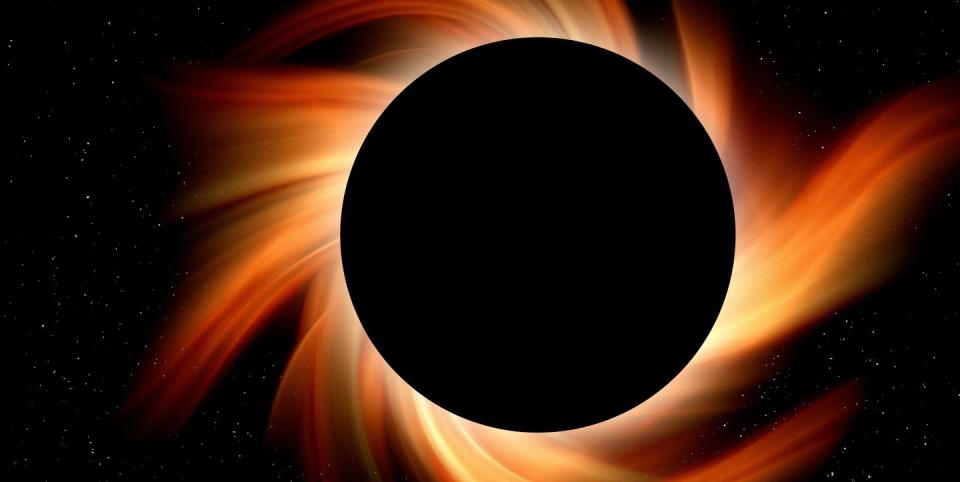Bummer: Everything in the Universe Is Going to Evaporate

Scientists believe that the radiation thought to come from black holes may not be a black hole exclusive.
Called Hawking radiation, it’s the result of quantum fields producing particle-antiparticle pairs and the intense gravity of an event horizon in a black hole pulling those pairs apart.
A recent theoretical study claims that Hawking may not require an event horizon, but could be generated by any large enough gravity well.
Far in the future, past the death of the Sun and the annihilation of the Earth, everything will simply evaporate. Not just all that we know, or all that we’ve seen. It has nothing to do with us. While the universe started with a Bang, it will go out with a whimper.
At least, that is what’s being proposed by a group of researchers from Radboud University in the Netherlands. In a new study, the researchers investigated part of the mechanism behind a type of radiation produced by black holes called Hawking radiation, and discovered that it may be more omnipresent than we thought.
Hawking radiation is a funny one. Predicted by Stephen Hawking in 1974, it requires a bit of melding between theories of classical gravity and quantum physics. This type of radiation is caused when an electrical field interacts with other quantum fields in such a way that it causes the spontaneous generation of a particle and an antiparticle.
Antiparticles are like inverse particles—for every type of particle, there’s an equal and opposite antiparticle. Luckily for us, particles outnumber antiparticles by a significant amount. We don’t know why, but that’s good news. If there were an equal number of particles and antiparticles, nothing would exist. Opposites cancel each other out.
In most of these spontaneous pair generation cases, the particle and antiparticle do just that: annihilate each other so that there’s nothing left. But sometimes, the gravity of the black hole is strong enough and pulls in just the right way to separate the halves of the pairs from each other. One is pulled past the event horizon and into the black hole, and one is pushed out and away as radiation—Hawking radiation.
Eventually, according to Hawking, enough of this radiation will fly away from a black hole that the huge gravity well will evaporate away into nonexistence. Like a tornado running out of steam, the black hole will just fizzle out.
But it’s not easy to separate a particle and an antiparticle in time to keep them in existence. For a long time, scientists believed that the dividing line of a black hole’s event horizon was the only way you could split these spontaneously created pairs of up to create radiation.
According to this new research, however, that’s just not true. Any large enough gravitational well can both create and split pairs—generating its own Hawking radiation and, thus, dissolving away. The short-range gravitational forces produced by these large bodies interacting with spacetime, known as tidal forces, are apparently enough to do the work of an event horizon.
“That means that objects without an event horizon, such as the remnants of dead stars and other large objects in the universe, also have this sort of radiation,” Heino Falcke, one of the authors of the study, said in a press release. “And, after a very long period, that would lead to everything in the universe eventually evaporating, just like black holes. This changes not only our understanding of Hawking radiation but also our view of the universe and its future.”
Now, this is all still highly theoretical. Black holes are still very mysterious objects, and we don’t exactly have a full rulebook for the quantum world yet either. But if this proposal can be confirmed through follow-up investigations, Falcke wouldn’t be wrong about needing to shift “our view of the universe and its future.” Whimper, not Bang, indeed.
You Might Also Like

 Yahoo Sports
Yahoo Sports 